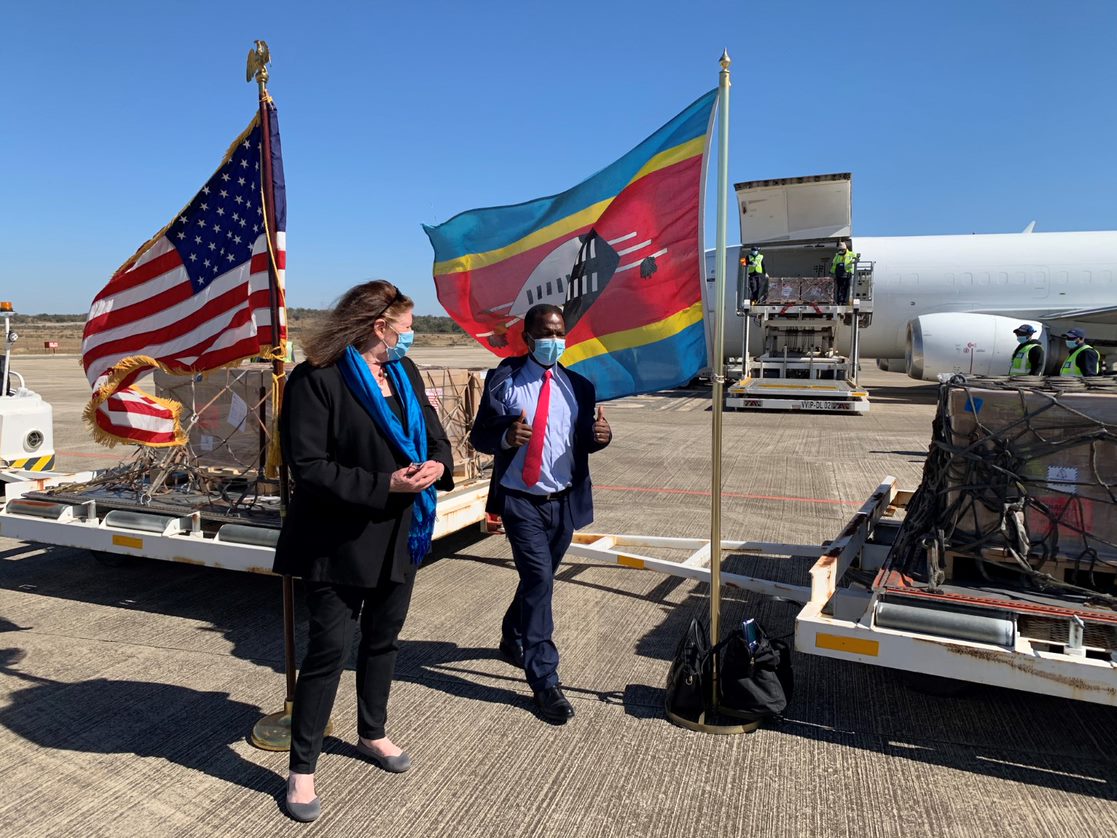 Image credit: U.S. Department of State
Image credit: U.S. Department of State
Navigating Diplomacy: Lessons From Eswatini-Taiwan Relations
Last week, 53 African leaders convened in Beijing for the ninth time since 2000 for the Forum on China-Africa Cooperation (FOCAC). With China stating Africa-China relations were at their “best in history,” both Chinese and African leaders were positive as they embarked on a new level of strategic cooperation. However, one African nation was absent in the celebration on Tiananmen Square due to diplomatic differences. The state formerly known as Swaziland is one of the smallest countries in Africa, but its relationship with Taiwan poses a threat to the Chinese ambition of economic dominance on the African continent.
Eswatini is the last remaining African nation that has diplomatic ties with the Republic of China (ROC). When the People’s Republic of China (PRC) was formally recognized as the legitimate government of China by the United Nations in 1971, Eswatini and thirteen other African nations voted against the resolution. Since that time, China has cut all diplomatic ties with countries associated with the Taiwanese government. As the years went by, an increasing number of African states have given in to what Eswatini refers to as “Chinese Dollar Diplomacy,” with Burkina Faso being the latest to succumb to Beijing’s pressure to derecognize Taiwan in 2018.
Likewise, Taiwan was quick to recognize the small landlocked nation in Southern Africa after it gained its independence in 1968. Since that time, the ROC and Eswatini have met on several occasions, confirming their diplomatic and economic cooperation. Their long-lasting partnership encompasses various sectors including healthcare, electrification, infrastructure and education. Among other things, this includes stipends for Swazi students studying in Taiwan, which can be seen as a counteroffer to the FOCAC initiative from China to fund 50,000 scholarships to African students in 2018.
On September 4th, Chinese Foreign Ministry spokesperson Mao Ning called on Eswatini to rethink its position on their relations with Taiwan, stating that it is not in their interest to develop official diplomatic ties with the ROC government. This is just one of many Chinese attempts to sway the Swazi leadership, as well as their citizens, away from Taipei. In September of last year, Eswatini’s leader King Mswati III denied not being invited to South Africa for the BRICS summit,using the opportunity to forge closer relations to Taiwan instead. In 2020, visa restrictions for Swazi citizens seeking to visit China were put in place in addition to a ban on raw sugar imports, one of Eswatini’s biggest dependable revenues.
The reason for Eswatini’s persisting diplomatic ties despite sanctions and repercussions from China has a threefold rationale. First, by siding with Taiwan, Eswatini is able to avoid the Chinese debt trap. Their citizens are still facing destitution, with 51.1% living under the threshold of extreme poverty in 2024, but Eswatini is doing better in terms of per-capita purchasing power than 40 other African countries. Many of these are reliant on Chinese economic support, leaving them vulnerable to foreign political and security influence. Second, Eswatini is the last remaining African absolute monarchy, and its leader, King Mswati, rules by decree with little signs of relinquishing power. By governing in this manner, the regime ensures control of popular mobilization and swift restoration of order, demonstrated in the 2021 protests. Shifting the state’s financial footing could threaten the political stability of the ruling power, creating room for a democratic uprising. Third, the official position of the Swazi government emphasizes that its strong diplomatic relationship with Taiwan is an ideological choice over an economic one, as in their words, Taiwan is “a democratic beacon of hope that should be given a chance to participate in the global space.” Therefore the Swazi delegation will likely continue the call for an independent Taiwan in the United Nations.
Taiwan’s diplomacy is in retreat elsewhere around the world, with only 12 countries remaining that recognize their sovereignty. Beijing is continuing to expand its strategic footprint amongst them, particularly in the Indo-Pacific. Six Pacific countries recognized Taiwan in 2018; by 2024, that number had halved. The small island country Nauru switched diplomatic recognition from Taiwan to China earlier this year. Maintaining steadfast diplomatic relations is therefore paramount to Taipei’s struggle against Beijing’s One China Policy and ongoing threat of military invasion.
The Eswatini-Taiwan relationship offers valuable geopolitical lessons for U.S. policymakers: Chinese dollar diplomacy is rising as Taiwan continues to strive for sovereignty, but small nations given democratic building blocks can still make an impact on the world stage. Like Taiwan, the United States should be willing to provide alternatives to China’s exclusionary economic policies and authoritarian influence. By improving targeted trade agreements and coordinated soft power initiatives in Africa, the U.S. can effectively counter China’s rising regional dominance and demonstrate that continued democratic engagement can make a positive impact on economic and political outcomes.





